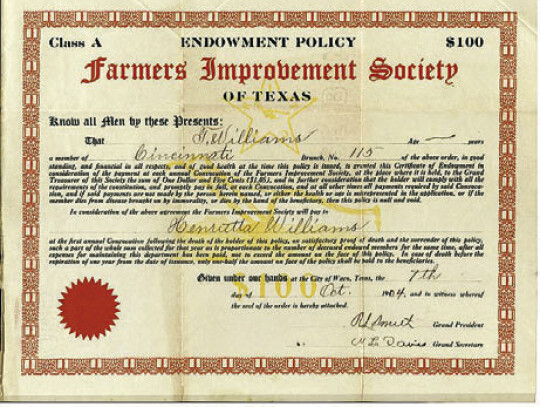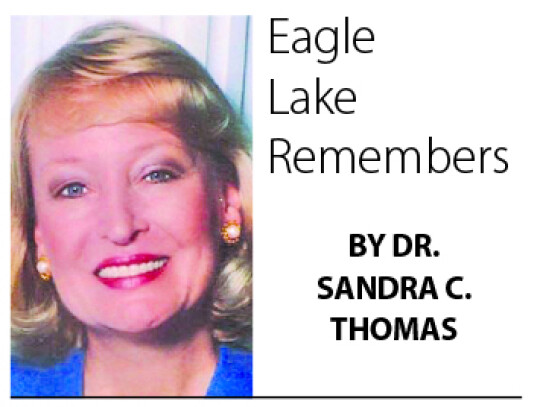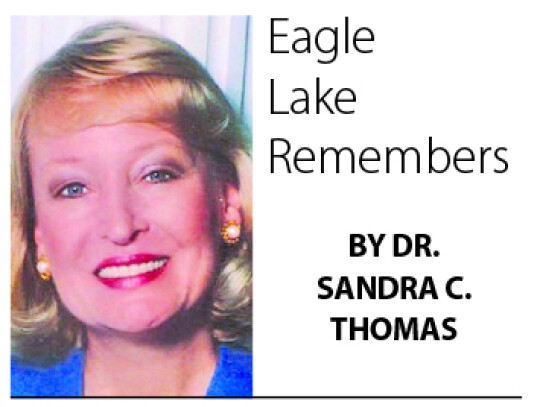There are many familiar names which surface during our Black History Month Focus. They have not only made history in Colorado County, but their good work has continued to grow and develop even beyond their leadership through the years.
One such leader in our county and state who later gained a national reputation was Robert Lloyd Smith from Oakland, who founded The Farmer’s Improvement Society in 1889. His organization developed self-help programs and a philosophy of economic self-sufficiency for black families. His leadership was especially valuable after the Civil War. Through education for agricultural and economic independence he assisted local farmers and sharecroppers in finding their voices in agricultural successes in the county.
Upon arrival in Texas, Smith settled in a small village called Freedmantown near Prairie Point, which later became Oakland, Texas near Weimar and Columbus. It was on the stagecoach line between Columbus and Gonzales earlier.
Robert Lloyd Smith (1861-1942) was an educated man with a drive to make lives better for black citizens. Smith was born a free man in Charleston, South Carolina and studied at Avery Institute, University of South Carolina, and at Atlanta University, where he graduated in 1880. He also partnered with Booker T. Washington on numerous occasions and projects.
He came to Colorado County as principal of the Oakland Normal School, a leading teacher-training school. His goals were to broaden his teaching to encompass economic and self-improvement courses and training. His work progressed in building black families and homes to the highest standards. The African American community advanced in great measure with his guidance and teaching.
In 1889, in Oakland, Smith organized the “Village Improvement Society” of Oakland, Texas.” He helped achieve the goals of village improvement through self-improvement. Seeing he importance of incorporating methods of farming and finance, a plan for cooperative purchasing was designed, and a plan for family care in times of sickness and death was devised. There were almost no black cemeteries at that time, and Smith assisted such villages as Eagle Lake to find land for burial grounds for black families and citizens. The East Cemetery in Eagle Lake was begun as a Farmers’ Improvement Society burial ground, and still exists today.
Smith’s Society advanced all over Texas to assist black families to cooperatively learn and share resources and buying power, to pay cash and avoid the credit bondage, and to continually improve their agricultural pursuits. The Society formed local groups throughout the state and held many classes and convocations, and classes on the mortgage system, crime, food production, wastefulness, race relations, schools, and insurance.
By 1900, the Society had more than 86 local branches with 2500 members. By 1909 it had 21,000 members and had spread to Oklahoma and Arkansas. Ultimately, Smith’s Farmers’ Improvement Society had over 50,000 members. It sponsored programs for women in agriculture, family management, children’s education, and ways to promote the successes of farmers and black families.
Robert Lloyd Smith was among the most accomplished Texas citizens. He was in good company with his colleague Booker T. Washington, with whom he shared the vision of the accomplishments of African Americans.
Smith was rightly elected to the 24th and 25th Texas Legislatures from predominately white Colorado County, in 1894 and 1896, where he ably represented the interests of black citizens. He headed the Negro Extension Division and served on foundations with Andrew Carnegie and Booker T. Washington.
He was the last Black legislator elected in Texas until the election of three African Americans, including Barbara Jordan, in 1966. Smith left his mark on Texas and the country with his “Farmers Improvement Society.” He was appointed by President Theodore Roosevelt as a deputy US Marshal in Texas. He opened the Farmers Improvement Society Bank in Waco, Texas in 1907 and was elected the first President of the Texas National Negro Business League branch.
Each time I drive past Cemetery East in Eagle Lake near FM 3013 I am reminded of the great vision, courage and leadership of Robert L. Smith. While he worked to lift the lives of African Americans in Colorado County and Texas, in so doing, he lifted us all.
.jpg)




